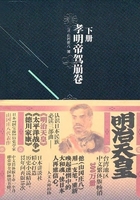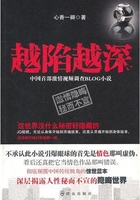Always Changing
Please excuse me if I’m a little pensive today. Mark is leaving, and I’m feeling kind of sad.
You probably don’t know Mark, but you might be lucky enough to know someone just like him. He’s been the heart and soul of the office for a couple of years, combining exemplary professional skills with a sweet nature and gentle disposition. He’s never been all that interested in getting credit for the terrific work he does. He just wants to do his job, and to do it superbly well.
And now he’s moving on to an exciting new professional opportunity. It sounds like it could be the chance of a lifetime, and we’re genuinely, sincerely pleased for him. But that doesn’t make it any easier to say goodbye to a dear friend and trusted colleague.
Life has a way of throwing these curve balls at us. Just when we start to get comfortable with a person, a place or a situation, something comes along to alter the recipe. A terrific neighbor moves away. A child in the family graduates. Another child finds new love and loyalties through marriage. The family’s principal breadwinner is laid off.
Our ability to cope with change and disruption determines, to a great degree, our peace, happiness and contentment in life.
But how do we do that? Philosophers have considered the question for centuries, and their responses have been varied. According to the author of the Biblical book of Ecclesiastes, comfort can be found in remembering that “to every thing there is a season, and a time to every purpose under the heaven”. Kahlil Gibran urged his listeners to “let today embrace the past with remembrance, and the future with longing”.
A friend of mine who works for the government is fond of reminding his fellow bureaucrats that “survivability depends upon adaptability”. And then there’s Chris, the California surf-rat, who once told me that the answer to life’s problems can be summed up in four words: “Go with the flow.”
“It’s like surfing,” Chris explained, “You can’t organize the ocean. Waves just happen. You ride them where they take you. Sure, you’re always hoping for the perfect wave where you can get, but mostly you just take them the way they come.”
I’m not exactly sure, but I think Chris was saying that life is a series of events—both good and bad. No matter how deft your organizational skills, there will always be life-influencing factors over which you have no control. The truly successful person expects the unexpected, and is prepared to make adjustments should the need arise—as it almost always does.
We’re going to miss Mark, just like you’ll miss that neighbor, that graduate, or that newlywed. But rather than dwell on the sadness of our parting, we’ll focus on our hopes for a brighter future—for him, and for us. And then we’ll go out and do everything we can to make that future happen.
如果今天我有些哀伤,请原谅,因为马克要走了,我有些难过。
或许你不知道马克是谁,但你得知道,认识像马克这样的人是很荣幸的。几年来,他一直是公司里的核心人物,不但性情温文尔雅,就连职业技能也堪称典范。他工作出色,但这绝不是为谋求个人荣誉。他只是喜欢自己的工作,想把工作做到最好。
现在,他就要奔赴一个难得的新工作岗位了。这个工作机会听来就像是百年一遇之良机。当然,我们由衷地为他感到高兴,但向一位挚友、一个值得信赖的同事挥手道别又绝非易事。
生活向我们抛来这样的曲线球自有其道理。就在我们刚刚熟悉某人、某地或某种情形时,生活就会发生某种变化,一改这种和谐的局面。这就像一个极好的邻居搬走了;家中的一个孩子从学校毕业了,而另一个结了婚,找到了新的爱情和忠诚;家里的顶梁柱失业了,等等。
我们的心态是否平和,我们过得是否幸福、对生活是否满足,在很大程度上,都取决于我们应对变化和变革的能力。
然而,我们该如何应对呢?多少年来,哲学家们一直都在考虑这个问题,他们的回答也不尽相同。《圣经》中《传道书》的作者认为,要想舒坦无扰,就得记住“万物都有定期,凡事都有定时”。卡里·纪伯伦鼓励他的倾听者:“今天,让我们用回忆拥抱过去,用期盼迎接未来吧。”
我有一个朋友在政府部门工作。他常常提醒同僚:“生存能力取决于适应力。”加利福利亚州的冲浪高手克里斯也曾告诉过我,解决生活中所遇到的种种困难的方法可以用四个字来概括,即“顺流而行”。
克里斯解释说:“这就像冲浪。你无法控制波涛汹涌的大海,你只能乘浪而行。当然,你总希望能赶上最合自己心意的波浪,但很多时候,有什么样的浪来,你就得赶什么样的浪。”
对于克里斯的这席话,我虽不全然赞同,但我想,他认为生活是由一连串的事件构成——有好也有坏。不论你处理问题的能力有多高,总有些影响生活的因素是你无法控制的。真正有成就的人总会对意料之外的事做好准备,并随时做好调整的准备——要知道,生活总是需要不断调整的。
我们会想念马克,就像你会想念那个邻居、那个毕业的孩子或新郎(新娘)一样。但是,与其沉湎在分离的悲伤中,还不如寄希望于一个更加光明的未来——为他,也为我们自己。这样,我们就会走出悲伤的阴影,全力以赴地去实现美好的明天。
1. He’s never been all that interested in credit for the terrific work he does. He just wants to do his , and to do it superbly .
2. Our ability to cope with and disruption determines, to a great degree, our , happiness and contentment in life.
3. The truly successful person the unexpected, and is prepared to make adjustments should the arise—as it almost always .
1. 生活向我们抛来这样的曲线球自有其道理。
2. 你无法控制波涛汹涌的大海,你只能乘浪而行。
3. 不论你处理问题的能力有多高,总有些影响生活的因素是你无法控制的。
1. According to the author of the Biblical book of Ecclesiastes, comfort can be found in remembering that “to every thing there is a season, and a time to every purpose under the heaven”.
according to:根据,按照;取决于;据……所说
2. ...the answer to life’s problems can be summed up in four words:“Go with the flow.”
sum up:总结;概述;计算……的总数















